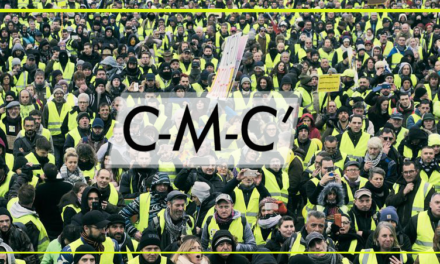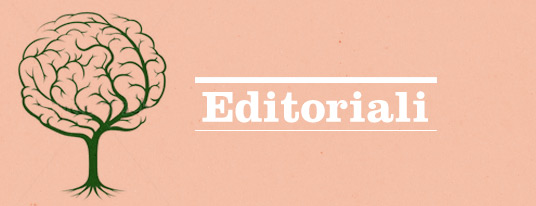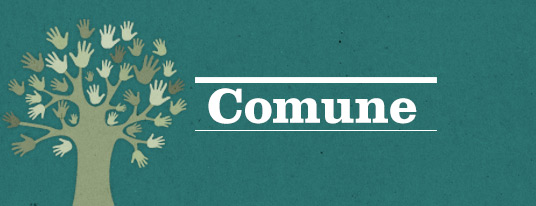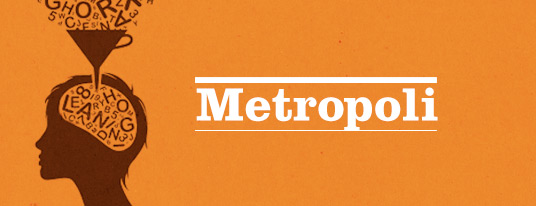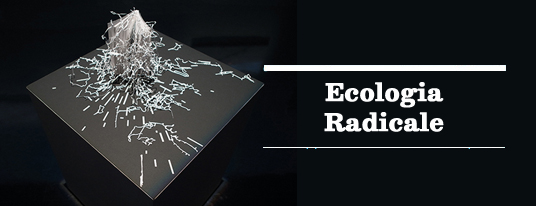Riprendiamo qui l’intervento di Sandro Mezzadra al convegno The (Re)construction of the World. Aid. Solidarity. Politics organizzato da Medico International del 12-14 febbraio 2021. Il programma del convegno è disponibile qui.
By SANDRO MEZZADRA
The Need and the Desire to Go and to Arrive. On the World Situation of Postcolonial Capitalism
Allow me to start by warmly thanking the organizers of this timely conference, and among them in particular my dear friend Thomas Seibert, for inviting me to give a lecture on such a challenging (and also a bit intimidating) topic as “the world situation of postcolonial capitalism.” To engage in a discussion of the world from the angle of the possibilities of its reconstruction is indeed a crucial task in the current conjuncture – or, as we can say with a classical reference, “in this distracted globe.” I will try to contribute to this necessarily collective endeavor with an analysis of some of the main trends that, it seems to me, shape the development of capitalism in the framework of the pandemic crisis. We have to be aware of the fact that capitalism is characterized by a kind of “elective affinity” with crises, which often provide the opportunity for a dramatic and even radical reorganization of its working.
A methodic principle must be clarified at the very beginning of this lecture. The analysis of the current state of capitalism is not a task to be accomplished independently from a search for the potentialities for transformation and even liberation. Let me exemplify this point. Haiti and Moria are taken in this conference as iconic representations of the misery of our world. And rightly so! They both instantiate the violent dispossession and brutality that crisscross the history of capitalism writ large (and in particular its colonial and imperial variants) and that seems even more widespread and globalized today. “Necropolitics” and exclusion seem to fully grasp what is going on here. But while such notions are doubtlessly helpful, we should also look for different angles when confronted with situations like Haiti and Moria. We should for instance carefully trace the persistent imprint of social movements and struggles since the Haitian revolution in the 1790s in order to shed light on even unexpected possibilities of subaltern resistance and power. And we should link the catastrophe of Moria to wider geographies of movements and struggles of migration across borders to give a sense of the political stakes that surround even an abject site like the infamous camp on the Greek island of Lesbos. And this, I want to repeat, without ever losing sight of the outrageous reality of violence, exclusion, and dispossession that proliferate at the very heart of postcolonial capitalism.
The notion of “postcolonial capitalism,” which figures in the title of my lecture, has widely circulated in critical debates over the last years. For many scholars, for instance for the Bengali economist Kalyan Sanyal, it mainly refers to the form taken by capitalist development in the former colonized world. Contending that what Marx famously analyzed in terms of the “so-called primitive accumulation” at the same time constantly repeats itself and never ends up in processes of full-fledged proletarianization, Sanyal stresses the importance and new nature of poverty and the politics of poverty in particular in India. While I have learned from such debates in India and elsewhere (for instance in Latin America), my use of “postcolonial capitalism” is quite different. To put it quickly, I take that notion as a critical lens that allows me to investigate the global dimension of contemporary capitalism, looking on the one hand at the reproduction in scattered form of the legacy of colonialism and on the other hand at the emergence of new assemblages of space and capital that work the boundary between “center” and “periphery.” And far from limiting “postcolonial capitalism” to the former colonized world, I insist on the fact that also the former metropoles have become postcolonial, which becomes particularly apparent when we look at movements of migration and more generally at the transformations of labor and citizenship.
Let me be clear on this point. “Postcolonial capitalism” is not the only notion I use to define contemporary capitalism. In my work (particularly in my collaborative writing with Brett Neilson), I rather take it as a critical framework to be combined with others – from “racial capitalism” to “patriarchal capitalism,” from “financial” to “logistical capitalism.” I am indeed convinced that only such an interplay between different critical gazes can produce an adequate understanding of the shifting forms of exploitation, dispossession, and domination that make up contemporary capitalism as well as of the heterogeneous subjective composition struggling within and against those forms of exploitation, dispossession, and domination. Key to my work is the idea that contemporary capitalism is characterized by a high homogeneity of capital’s operations (the prominence of finance and logistics is emblematic in this respect) but the very way in which such operations are deployed, “hit the ground” prompts differential regimes of labor and accumulation. Think of food delivery platforms, to give just one example. The smooth working of the algorithm is structurally combined here with a deep diversification of the workforce. “Difference” is therefore more and more important for the critique of contemporary capitalism, which explains why gender and race cannot be considered as “secondary” or “external” elements or contradictions.
There was a need to say something on the notion of “postcolonial capitalism” as well as on the way in which I use it in my critical approach to contemporary capitalism. But let me now come more directly to the issue of capitalism and the pandemic crisis. I was saying before that I am convinced that the global dimension is constitutive of contemporary capitalism. When I speak of a “global dimension” I am not rehearsing the phantasies of a smooth global space, of a borderless world brought about by market freedom and liberal democracy that characterized the discussion of globalization in the 1990s. Between Seattle and Genoa those phantasies were disposed of even before history took a different turn at the beginning of the new century. “Global dimension” rather refers for me to a set of crucial global processes that selectively connect and disconnect a fractured global space, enabling different forms of mobility (of “stuff” and capitals no less than humans) upon which the valorization and accumulation of capital in their current forms are predicated. What I have in mind are for instance global supply chains, logistical corridors, financial circuits, maritime routes, pipelines, data centers, submarine cables, corridors for the recruitment of migrant labor.
If one emphasizes this connection between contemporary capitalism, global processes, and mobility (that was only rhetorically challenged even by Donald Trump and the likes), it is easy to see that the outbreak of the pandemic raised substantial problems. In a particularly pronounced way in the first months, the pandemic crisis was indeed a crisis of mobility. Needless to say, migrants and refugees paid the highest price for it. But even for capital it was a shock, which took in particular the form of a slowing down and even stillstand of the logistical apparatus. Looking at logistics, and more generally at the “mobility business” provides us with a privileged angle on the transformations of capitalism in the framework of the current crisis. And we have to admit that logistics was able to reorganize its circuits and its working quite quickly. In many parts of the world, it was classified by governments as an “essential” economic activity during the pandemic, with the ensuing classification of logistical workers as “essential workers.” I will pick up again on this definition in a while. For now, let me stress that speaking of logistics implies speaking of a very wide and heterogeneous domain of economic activity, including for instance the warehouses of Amazon and container ships, port docks, and last mile delivery. Capital invested in logistics is doomed to exponentially grow in the next years, and the logistical rationality will spread even further across economies and societies.
In many ways an instantiation of the logistical rationality, digital platforms will also definitely figure among the winners of the current crisis. One can say that the name Jeff Bezos effectively instantiates the combination of logistics and platforms. In general, platforms have entrenched their grip on social relations during the pandemic precisely managing the crisis of mobility that I was mentioning before. This is clear for food delivery platforms like Deliveroo and Just Eat. But think also of such platforms as Zoom and Teams, which helped us to manage a crisis of sociability while also enabling “smart working” and a wide range of crucial social activities (from education to political activism) at a distance. The stock market value of such platforms increased in a spectacular way, with for instance Zoom’s capitalization exceeding General Motors’ last May. And let me add that over the last year what we can call the financialization of platforms has reached an unprecedented stage, as for instance the stock exchange listing of Airbnb last December amply demonstrates. Indeed, if one considers the “core business” of Airbnb, which has to do with a specific form of mobility jeopardized and even disrupted by the crisis, it may result at first difficult to understand the reasons of its stock exchange amazing success.
Such success has definitely to do with the very form of the platform, with a new business form that is deeply transforming entrepreneurship and labor well beyond the domain of digital platforms in the narrow sense. Let us focus on labor. Scholars engaged in the study of digital platforms use to distinguish between “platform labor” and what they call “platformization of labor.” The first notion refers to work directly managed and commanded by digital platforms, while the second attempts to grasp the disruptive effects of the operations of platforms for the organization of labor and production in established branches of industry and services. I would need much more time to expand on such effects, which work the boundary between labor and life. Suffice it to say that the prevailing form of organization of platform labor combines algorithmic management with a reemergence of supposedly outdated and even “archaic” forms of work, like for instance piecework. Labor rights and social benefits are effectively erased here as well any idea of a “standard employment relation.” And what the “platformization of labor” ideally foreshadows is a dystopic 24/7 mobilization of labor and life that prompts the valorization and accumulation of capital as uncontested societal norm.
There would be of course much more to say on digital platforms as well as on the tensions and struggles that surround them. I just focused on some of the tendencies that prompt their development in a time of pandemic crisis. Let me add that, picking up again on the question of the global, the spread of digital platforms and platform labor is far from being limited to the West. It is rather a global process that takes different forms in different parts of the world. Critical scholars and activists working on platforms largely speak the same language because they are confronted with the same kind of processes and problems (and last October there was a first global day of action promoted by grassroots rider unions from Latin America and Europe). Nevertheless, the postcolonial nature of contemporary capitalism emerges also here, and more generally with respect to digital labor. The geographies of what Antonio Casilli calls the “information sweatshops,” where workers execute in unending working days the most repetitive, physically stressing, and alienating tasks to enable the working of artificial intelligence and digital platforms largely coincide with former colonial geographies. Needless to say, the role of China should be analyzed here, and here is a need to stress that the shift toward China of the global balance of economic power – accelerated by the pandemic – is more generally a fundamental element to take into account when we speak of the future of capitalism. The current geopolitical competition on the vaccines is of course deeply related to that.
However, I cannot dwell on such questions now. Focusing on logistics, finance, and digital platforms, I attempted to sketch what I consider some of the main trends in the working and nature of capitalism emerging out of the current crisis. But let me add that, however important in themselves and for the wider effects they deploy, logistics, finance, and digital platforms are far from constituting capital as a whole. Looking in particular at labor and life of the poor, the subaltern, the dispossessed, and the exploited we must necessarily widen our analytical perspective. What is really crucial from this point of view is social reproduction, often predicated upon unpaid labor performed by women. We must closely look from this point of view at a societal fabric that has been severely tested by the pandemic and by the ensuing economic disruption. We must critically analyze the spread of fear and individualism, while emphasizing at the same time that in many parts of the world we have witnessed at the same time amazing practices of solidarity, mutualism, and self-organization. But we also have to take stock of the fact that the pandemic has further accelerated and entrenched a trend to the explosive growth of inequality and polarization of wealth that builds a structural feature of contemporary capitalism. The Inequality Virus, the report released by OXFAM a couple of weeks ago, describes such growth of inequality at the global level in the last year in telling and appalling ways. When we read that the increase of wealth of the 10 richest billionaires since the crisis begun is more than enough to pay for a Covid-19 vaccine for all, any measure really seems to be lost. But the Oxfam report also demonstrates that poverty is more and more racialized and sexualized, while “informal workers,” and among them platform workers, are on the frontline. Add to this the multiplication of environmental unbalances and even catastrophes, that played a key role in spurring the pandemic, and you get a clear, although dark picture of the predicament of life under contemporary capitalism.
The emerging trends in logistics, finance, and digital platforms that I have outlined will not contribute to positively transform such a dire condition. Combined with other trends, they rather foreshadow a new terrain of capitalist development, where the relation between capital and labor skips any political and even legal mediation, including the one performed by the contract. And I am taking labor here in a wide sense, bordering on life and including social reproduction as feminist theories and struggles taught us to do. I know, I am overemphasizing this point. There will be labor rights and contracts in the next future, with a variable geometry and geography. But rights and contracts will not define the norm, the “standard” in labor relations, unless labor movements and struggles will be able to invent and impose new rights, new norms and even new “standards.” Anyway, we are confronted here with a pivotal shift, with a transition to an “absolute capitalism” (to borrow a notion from Étienne Balibar) that was prepared by the long history of neoliberal hegemony but is accomplished today in unprecedented forms. The implications are potentially momentous. Take for instance migration, which is not going to stop in the wake of the pandemic but will definitely take new forms in a world where the hygienic sanitary reinforcement of international borders has run parallel to a multiplication of internal boundaries of all sorts. The kind of “forced mobility” experienced by many migrants during the crisis, in particular as “essential workers” in logistical warehouses, in agriculture, and as riders for food delivery platforms, may foreshadow a dystopic form of “migration management” according to a delivery rationality, with ghettos and even places like Moria serving as recruitment reservoirs.
The reconstruction of the world becomes indeed an urgent task in such a condition. Struggles and movements during the pandemic crisis provide us with an essential source of inspiration while thinking about such a reconstruction. From the movement for black lives in the U.S. to the continuity of feminist mobilizations in Latin America and elsewhere, to mention just two important instances, a radical refusal of specific forms of violence and domination mobilizes millions of people. To this one should add environmental campaigns, resistance against infrastructural and extractive megaprojects, struggles around health and education, the stubbornness of migrants challenging increasingly fortified borders, self-organization of riders and other (often migrant) logistical workers in many parts of the world, including Europe. The list could easily go on, but these scattered and far from comprehensive references should be enough to demonstrate that a reconstruction of the world is in some sense already underway. And indeed, I am convinced that only movements and struggles can lay the material basis for such a reconstruction.
In a way, we are again “talking about revolution,” as Thomas Seibert suggests in the newspaper produced for this conference. But we are just starting to do that. We know that a radical break is needed, but we do not know how a revolution could look like today, under the conditions of contemporary capitalism and in a world covered with sores by viruses, rising inequality, extreme forms of violence, and climate change. Old theories and experiences do not necessarily help in this regard, and the vexed alternative between reform and revolution is also behind us. What really matters is radical transformation, is a politics of liberation predicated upon an uncompromised struggle against oppression, domination, dispossession, and exploitation. The work of a collective intellect and imagination is urgently needed to flesh out constitutive principles – a program – from the materiality of struggles and to foreshadow the reconstruction of the world. But such an intellect and imagination, as well as politics in general, cannot lie and operate outside of struggles. It is rather the intertwining of bodies and intellect, passions and rationality that characterizes the most powerful movements and struggles of our time. And it is precisely such an intertwining that shapes the composition of the heterogeneous and even fractured social cooperation that is exploited and is therefore at the basis of the creation of value in contemporary capitalism. That social cooperation, which of course takes different forms in different parts of the world, is eventually the real battleground for the reconstruction of the world. Investigating the fault lines that crisscross that battleground, working toward the building of struggles and coalitions, instituting the necessary political mediations to consolidate the emergence of a collective, transformative power is for me a good, although quite abstract way to define the main tasks of the revolutionaries today.






